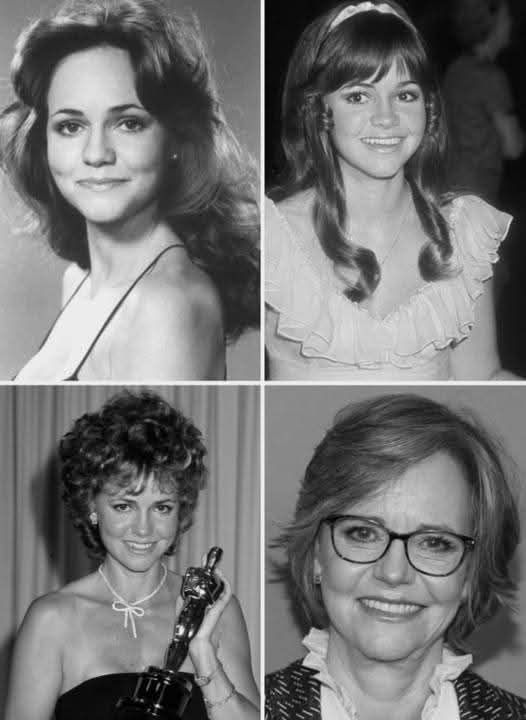The sound of her stepfather’s footsteps in the hallway would freeze young Sally Field in place. Even as a child, she could sense a shift in the air when he was near. There were no loud arguments or slamming doors—just a quiet, creeping unease that cloaked her childhood like a heavy fog. In her small bedroom, Sally would lie motionless, pretending to sleep, silently begging that he would pass her door. But all too often, he didn’t. And she never forgot that dread.
Sally was only six years old when her mother married Jock Mahoney—a charming stuntman and actor who would later portray Tarzan on screen. To the public, Mahoney was charismatic and commanding, a figure of Hollywood allure. But to Sally, he embodied a slow-burning fear that haunted her most vulnerable years. He didn’t leave visible scars, but he crossed emotional and physical boundaries under the guise of affection—leaving behind wounds that would take decades to uncover.
In her powerful memoir In Pieces, Sally Field finally gave voice to the emotional wounds she had kept hidden for so long. She described how Mahoney’s behavior during her adolescence left her feeling ashamed, confused, and deeply hollow. His presence felt invasive; his touch, though framed as affectionate, felt deeply wrong. She lived in silence, uncertain of how to label what was happening—and too afraid to reach out for help. Her mother, Margaret Field, a former actress herself, either didn’t notice or chose to look away. That lack of protection cut even deeper than Mahoney’s actions.
What hurt even more was how the experience distorted Sally’s understanding of love and self-worth. She learned to mold herself into what others wanted—cheerful, obedient, lovable. Acting wasn’t just a career—it became a way to survive. The bright, bubbly personality she portrayed in Gidget and The Flying Nun wasn’t only for the cameras—it was her shield. Behind that wide smile was a young woman still silently carrying the weight of unspoken pain.
The trauma didn’t vanish with time. Even as she achieved fame, won two Oscars, and became a cherished American actress, that inner struggle persisted. It wasn’t until years later—through therapy and introspection—that Sally began peeling away the layers of silence she had worn since childhood.
Writing In Pieces became her moment of liberation. Every page was a confrontation with long-buried ghosts. It wasn’t about revenge—it was about healing. “I had to write it,” she said. “It was the only way I could breathe again.” Through that vulnerability, she didn’t just speak for herself—she gave a voice to countless others who had lived through the same kind of quiet suffering.
Sally’s decision to reveal the darkest corners of her past didn’t diminish her—it elevated her. No longer just a gifted actress, she emerged as a woman of remarkable emotional courage. What once made her feel broken became a source of strength and connection—not only with her readers and fellow survivors, but with the parts of herself that had long gone unheard.
Her story, once rooted in pain, is now one of reclamation. Sally Field took the painful script of her past and rewrote it—with truth, compassion, and courage.__✍️🥰
